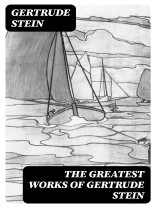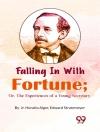In ‘The Greatest Works of Gertrude Stein, ‘ readers are invited into the avant-garde world of Stein’s literary brilliance, characterized by her innovative use of language, repetitive phrasing, and a keen exploration of identity and perception. This compilation showcases her most influential writings, including ‘Three Lives’ and ‘Tender Buttons, ‘ pieces that challenge conventional narrative forms and embrace the rhythms of modernist experimentation. Stein’s prose often blurs the lines between poetry and prose, reflecting the tumultuous cultural context of the early 20th century, when traditional artistic conventions were being dismantled and redefined. Gertrude Stein, a pivotal figure in the American avant-garde movement, was deeply influenced by her experiences in Paris, where she cultivated connections with other modernist thinkers like Picasso and Hemingway. Stein’s innovative approach to language and form stemmed from her desire to express the complexity of human experience and the essence of being in a rapidly changing world. Her background in psychology and her role as a patron of the arts enriched her narrative techniques and thematic preoccupations. This collection is essential for anyone seeking to grasp the radical spirit of modernism and the unique contributions of female voices in literature. Readers will find themselves captivated by Stein’s extraordinary ability to transform the ordinary into the extraordinary, illuminating the depths of perception and existence.
Giới thiệu về tác giả
Gertrude Stein was a titan of modernist literature, known for her avant-garde approach, her influential Paris salon, and her role as a mentor to some of the early 20th century’s most famous writers and artists. Born on February 3, 1874 in Allegheny, Pennsylvania, Stein moved to Paris in 1903, where she would host a who’s who of the art world at her home, including the likes of Picasso, Hemingway, and Fitzgerald. Stein’s work is characteristic of stream-of-consciousness techniques and a radical experimentation with punctuation, word repetition and syntax. Her literary style has often been termed as ‘cubist, ‘ mirroring the contemporary art movement where her friends and peers were major figures. Notable works include ‘Three Lives’ (1909), ‘Tender Buttons’ (1914), and ‘The Autobiography of Alice B. Toklas’ (1933), which is ostensibly Stein’s memoirs through the voice of her life partner. ‘The Greatest Works of Gertrude Stein’ encompasses these significant writings, showcasing the range and depth of her literary endeavors. Endlessly quotable, Stein once remarked, ‘A rose is a rose is a rose, ‘ underscoring her fascination with the power of repetition and language. A literary innovator and a central figure in modernism, Stein’s contributions to literature remain prevalent, studied for their revolutionary impact on form and narrative structure. Stein passed away on July 27, 1946, leaving a legacy of written works that continue to challenge and entice readers and scholars to this day.












